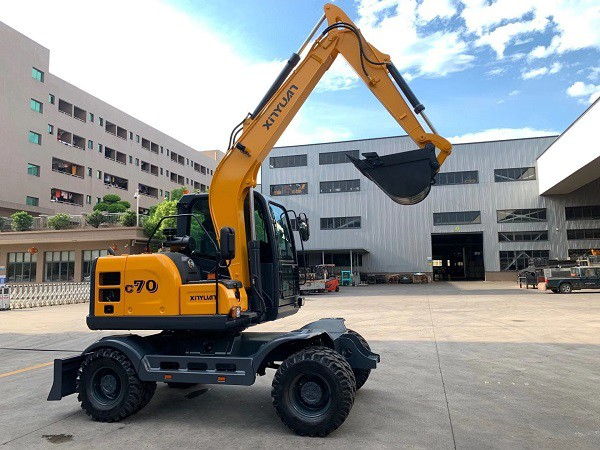Lubricating grease is used for the friction part of machinery to lubricate and seal. It is also used on metal surfaces to fill gaps and prevent rust. It is mainly made of mineral oil or synthetic lubricating oil and thickener. Most greases are used for lubrication and are called antifriction greases. Antifriction grease is mainly used to reduce mechanical friction and prevent mechanical wear. At the same time, it also plays the role of protection against metal corrosion and sealing and dust prevention. Some greases are mainly used to prevent metal from rusting or corrosion, which is called protective grease. Some greases are specially used for sealing, which is called sealing grease. Lubricating grease is mostly a semi-solid substance with unique fluidity. The working principle of lubricating grease is that the thickener keeps the oil at the position that needs lubrication. When there is load, the thickener releases the oil, thus playing a lubricating role. The lubricating grease used in construction machinery may fail for some reasons during use. There are many reasons, which are generally divided into physical factors and chemical factors. This article will analyze from these two points. For reference only.
1. Failure caused by physical factors
In use, the grease will be subjected to mechanical shear and centrifugal force at the same time, and the grease will be thrown out of the friction interface to make it separate oil. As a result, the lubricating grease content is reduced, and the cone penetration is reduced and hardened. To a certain extent, the grease will be completely ineffective. Under the action of mechanical shear, the structure of lubricating grease is damaged, resulting in its softening, consistency reduction and oil precipitation increase, which eventually leads to failure. Generally, if the transmission speed of lubricating grease is increased by 2000r/min, its service life will be reduced by about half. Under high shear stress, the rotating speed is doubled, and the service life is only 1/10 of the original life.
2. Failure caused by chemical factors
The lubricating grease reacts with oxygen in the air to produce acidic substances. Firstly, it consumes the antioxidant additives in the grease, but to a certain extent, the generated organic acids will corrode the metal components and destroy the structure of the grease, causing its drop point to drop, the viscosity of the base oil to increase and the fluidity to deteriorate. A large number of tests show that the higher the temperature, the more obvious the decline in the service life of grease. For example, when the temperature is 90 ~ 100 degrees, the service life of the grease will be reduced by about half for every 19 degrees of temperature increase. At 10 ~ 150 degrees, the service life of grease will be reduced by half for every 15 degrees of temperature increase. In addition, moisture, dust and harmful gases in the environment in which lubricating grease is used are also important factors that degrade it.

